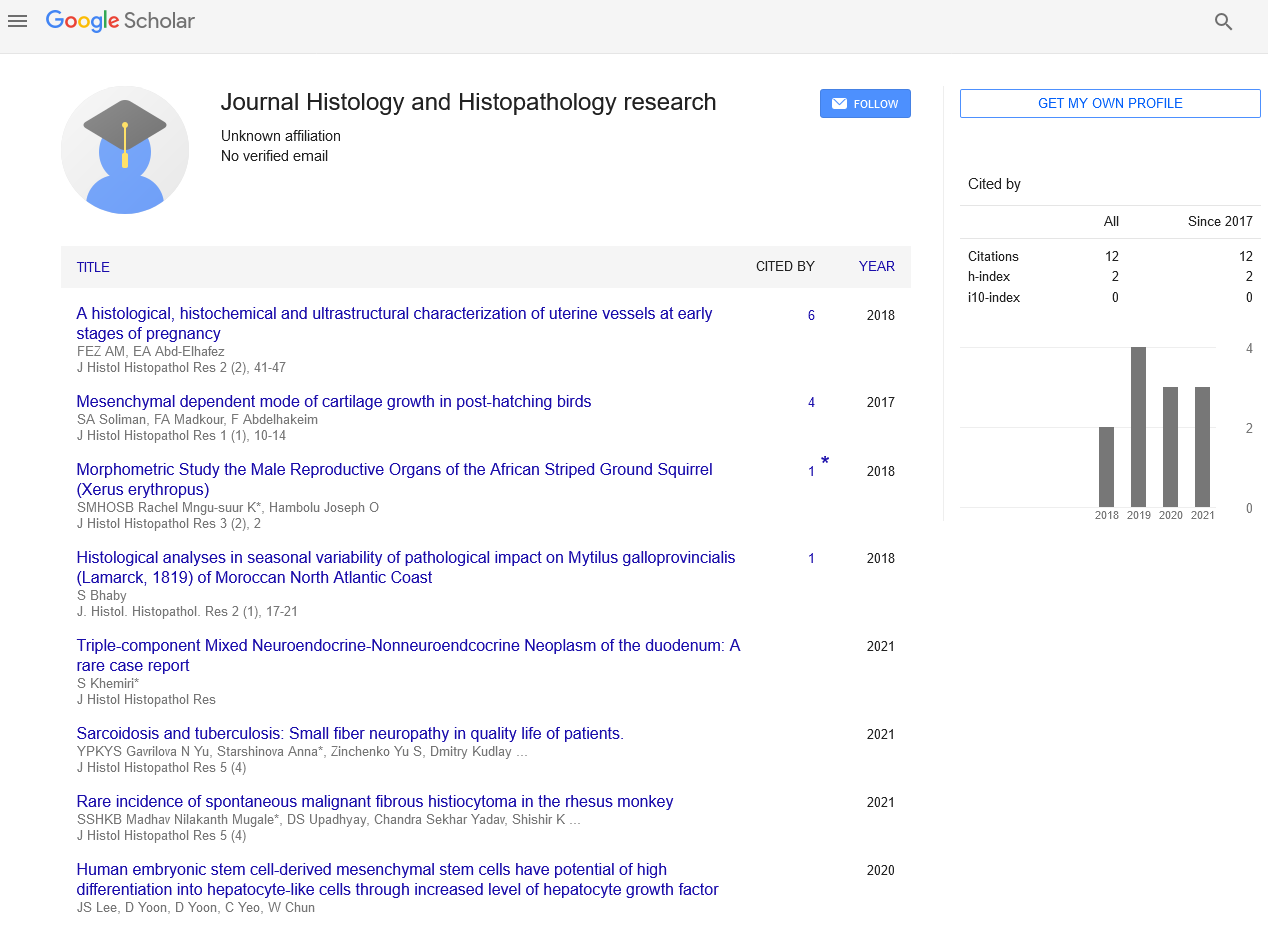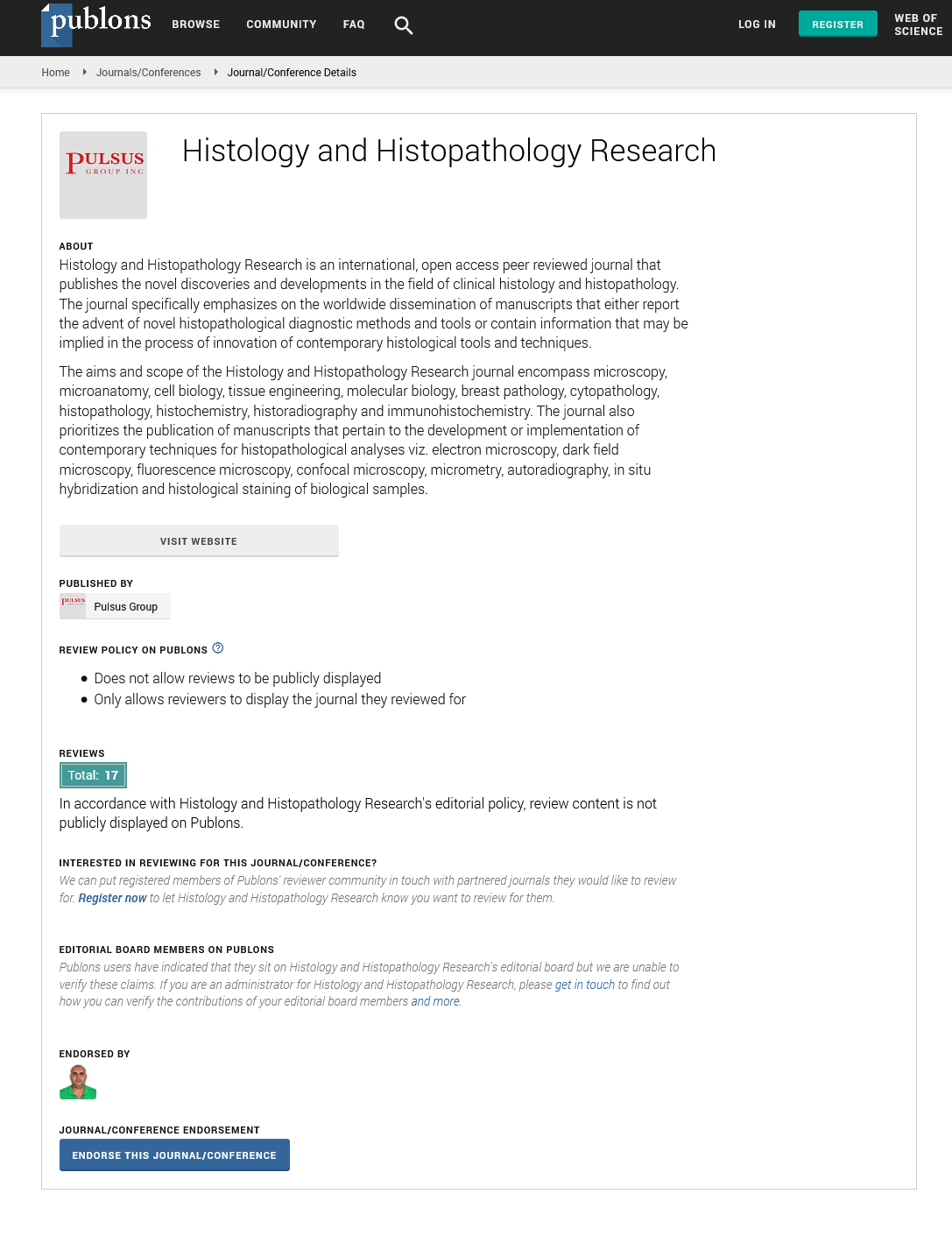
Sign up for email alert when new content gets added: Sign up
Abstract
Histological analyses in seasonal variability of pathological impact on Mytilus galloprovincialis (Lamarck, 1819) of Moroccan North Atlantic Coast
Author(s): Sanaa Bhaby*We histopathologically investigated the seasonal variability in health status of a natural population of mussels (Mytilus galloprovincialis) in the Atlantic coast region of Morocco. We hypothesized those external conditions and the health status of hosts synergistically disturbed M. galloprovincialis and determined infections of endoparasites due to the stress upon the host. In Moulay Bousselham, an ecologically important habitat for the indigenous shellfish, varieties of endoparasites were identified from samples collected between March 2009 and March 2011. Pathological status of M. galloprovincialis was examined and interpreted based on statistical relationships between major parasites and environmental variables and temporal changes in physiological conditions of M. galloprovincialis. Ciliophora, Nematopsis, and Rickettsia-like organisms were observed throughout the study period. Their prevalences were found to be statistically related to temperature and salinity, and to the host’s own physical condition. Bacteria colonies were often observed in gill tissues, while some hosts exhibited severe infections in their digestive and pericardial glands. Hemocytic infiltration was not found in association with bacterial infections. Lesser prevalent parasites found in our study included Proctoeces maculatus, gill ciliate Ancistrum mytili, Pseudoklossia-like coccidian, and Mytilicola intestinalis. While these infections did not total more than 7% in annual prevalence, they may, based on their known effects, pose a significant threat to M. galloprovincialis. In our study, many cases of hemocytic infiltration were found in gonad, digestive gland, and gills; not always were they found in association with pathogens (such as Ciliophora or Nematopsis).
Full-Text | PDF





